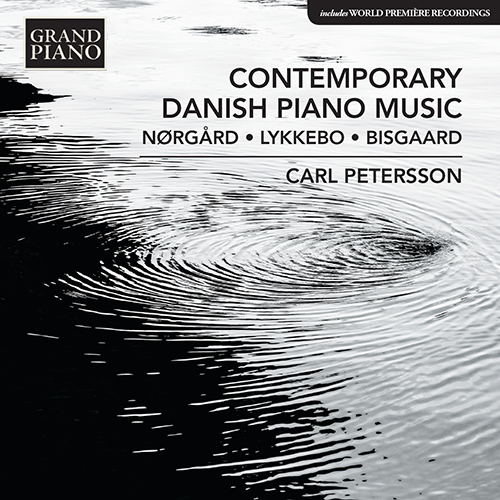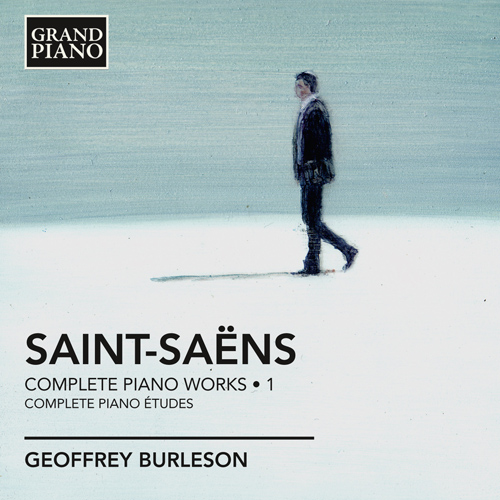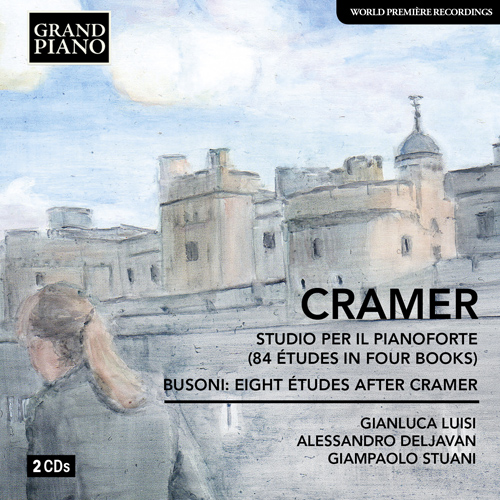
FRIEDRICH BURGMÜLLER (1806–1874)
25 EASY AND PROGRESSIVE STUDIES, OP. 100
18 CHARACTERISTIC STUDIES, OP. 109
CARL PETERSSON
‘I've known about Friedrich Burgmüller forever, but only a few, such as the Arabesque. I remember thinking that this is beautiful, really charming and inviting, but I had no idea that these were etudes because they seemed like real music pieces. Each piece is really short, but each is like a small universe in itself. Aside from some of the more technical etudes, I would recommend these to listeners of all ages because they're so charming. They are a joy to listen to and a joy to perform.’ – Carl Petersson
in support of piano tuition activities. These recordings are presented by concert pianists who add their own performance voice and style to these finger exercises.

About this Recording
In 1832 German-born Friedrich Burgmüller (1806–1874) settled in Paris where he became internationally admired for his salon pieces and studies. At a time when demand for new teaching material had reached unprecedented heights, he supplied a sequence of works that appealed to the amateur market by virtue of their musical interest and appropriate technical demands.
Written for the burgeoning market for piano teaching material, the set of 25 Easy and Progressive Studies, Op. 100 was soon followed by the 18 Characteristic Studies, Op. 109, a continuation of the earlier set, each piece bearing a charming title. They continue to provide a basis for teaching to this day.
(’25 EINFACHE UND PROGRESSIVE ETÜDEN’ /
‘25 EASY AND PROGRESSIVE STUDIES) (30:40)
(’18 CHARAKTERISTISCHE ETÜDEN’ / ‘18 CHARACTERISTIC STUDIES’) (29:05)
TOTAL TIME: 59:52

Carl Petersson
Carl Petersson studied at the Royal Danish Academy of Music in Copenhagen with José Ribera, and was awarded the Tel-Hai International Piano Master Classes scholarship four years in succession, studying with Pnina Salzman, Viktor Derevianko and Emanuel Krasovsky. Petersson continues to perform internationally, and has appeared at venues such as Toronto’s Glenn Gould Studio at the CBC Centre, the Shanghai Oriental Art Center and the Kleinhans Music Hall in Buffalo, New York. He has performed with orchestras such as the Buffalo Philharmonic Orchestra, the Kraków Philharmonic, and the Czech National Symphony Orchestra. As a lecturer, Petersson has been invited as a guest speaker to, among others, the Royal Swedish Academy of Music, Tel Aviv University, the Hong Kong Academy for Performing Arts, and the University of Ottawa and the New England Conservatory.
CARL PETERSSON'S RECORDINGS ON GRAND PIANO
– The Classical Reviewer
– Piano News ★★★★★★

★★★★★
|
MORE RECOMMENDED ALBUMS WITH PIANO ÉTUDES
– American Record Guide






